(Posting a comment on this article automatically enters you into the drawing for the books to be given away in conjunction with this blog’s upcoming 1,000th post. See the details in a couple of posts back.)
“It is a violation of our rationalistic orientation to imagine the living God.” ~Walter Brueggemann, at the ACU Summit
 God is forever changing. He is always surprising, always shocking. Always doing what we least expect at the very moment we think we’ve got him figured out. And we don’t like that. I think if we’re honest, we have to admit that, at the very least, we’re not comfortable with it. We like to think we know what God thinks and what he’s going to do in every circumstance. We like to think that if we study the Bible enough and talk about God enough and pray to him enough, we’ll know him. And knowing him, we mean having him figured out.
God is forever changing. He is always surprising, always shocking. Always doing what we least expect at the very moment we think we’ve got him figured out. And we don’t like that. I think if we’re honest, we have to admit that, at the very least, we’re not comfortable with it. We like to think we know what God thinks and what he’s going to do in every circumstance. We like to think that if we study the Bible enough and talk about God enough and pray to him enough, we’ll know him. And knowing him, we mean having him figured out.
Good luck with that.
Our God changes his mind. Our God changes himself. Our holy Father repents and recants. He wrestles with his own feelings and emotions and goes back and forth all the time.
No?
Walter Brueggemann reminded us last week in Abilene that our God cut off his covenant people in Hosea (“You are not my people, and I am not your God” Hosea 1:9) and then after declaring all the ways they had sinned and all the ways he was going to abandon them, he changes his mind (“I will say to those called ‘Not my people,’ ‘You are my people’; and they will say, ‘You are my God'” Hosea 2:23).
 Following the Golden Calf incident, God promises to destroy his people. He tells Moses he’s going to start all over. He promises. Then, Moses talks him out of it. Moses presents a logical argument — what will the nations say? they’ll call you a weak and/or evil God! — and the Lord says, “Yeah, you’re right.” And he changes his mind. He forgives their sins and renews the covenant.
Following the Golden Calf incident, God promises to destroy his people. He tells Moses he’s going to start all over. He promises. Then, Moses talks him out of it. Moses presents a logical argument — what will the nations say? they’ll call you a weak and/or evil God! — and the Lord says, “Yeah, you’re right.” And he changes his mind. He forgives their sins and renews the covenant.
Over and over again in the prophets, God is said to “repent,” the Hebrew word shuv. He changes his mind. Jeremiah couldn’t be more clear that our God acts and reacts, he promises and then goes back on his promises, in response to current circumstances. He responds to the cries of his people. He’s moved by the plight of his children.
“If at any time I announce that a nation or kingdom is to be uprooted, torn down and destroyed, and if that nation I warned repents of its evil, then I will relent (repent) and not inflict on it the disaster I had planned. And if at another time I announce that a nation or kingdom is to be built up and planted, and if it does evil in my sight and does not obey me, then I will reconsider (repent) the good I had intended to do for it” (Jeremiah 18:7-10).
Our God is a free agent. He is a living, moving, active God with a free will to do as he pleases. And we can’t always figure him out. He doesn’t have to answer to us or our finite ideas about him. There’s no way for us to get a firm handle on him. He says as much to Moses: “I will have mercy on whom I will have mercy, I will have compassion on whom I will have compassion” (Exodus 33:19). Forget about trying to understand it. You can’t.
Thankfully, God has revealed his eternal glory to us, his everlasting nature. He is a kind and compassionate God, slow to anger, abounding in love and faithfulness, forgiving sin… (Exodus 34:6-7) Moses and the prophets all appeal to this creedal statement when they’re attempting to change God’s mind or when they’re seeking comfort and confidence in the middle of horrible circumstances. But the other part of that statement, “Yet he does not leave the guilty unpunished; he punishes the children and their children for the sin of the fathers to the third and fourth generation” (Exodus 34:7) gives us the problem. God’s going to do his thing in his own time. And it’s nearly always a surprise.
I think we need to embrace the hard-to-pin-down characteristics of our Father. I believe we should be shaped by the knowledge that our God is always changing his mind. The idea of a God who never changes will set us up for bitter disappointment when that God allows something to happen or causes something to happen that doesn’t fit with our hard and fast theological suppositions about him. What do we do then? And if God never changes, doesn’t that lead us to believe that we, too, should never change? If God never changes throughout all eternity, that might validate the life of a Christian who never changes. Some Christians never grow. They never change their minds. You know Christians like this; you may be a Christian like this. I’ve heard some Christians actually brag that they’ve never changed their minds about anything in Scripture. It’s all so clear to them — their understanding of God, their knowledge of his will and his ways, their church practices and Christian convictions — that changing their minds about anything has become a sign of weakness or of little faith.
Our God is changing his mind all the time. He’s open to it. He doesn’t apologize for it. We can deny it, we can be afraid of it, or we can embrace it as part of a real and dynamic relationship with a real and dynamic Father in Heaven.
Peace,
Allan
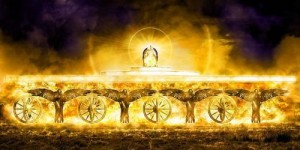
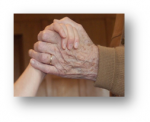

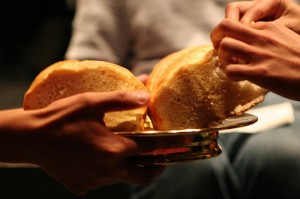


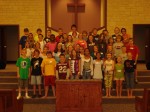





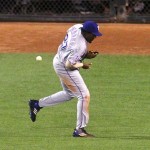
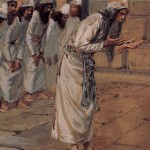
Recent Comments